AIDS
Latest

Anthony Fauci's enduring impact on the AIDS crisis
With the news that Dr Anthony Fauci will leave his role as Director of the NIAID in December, we take a look at his tireless work in the HIV/AIDS crisis, America's other pandemic.
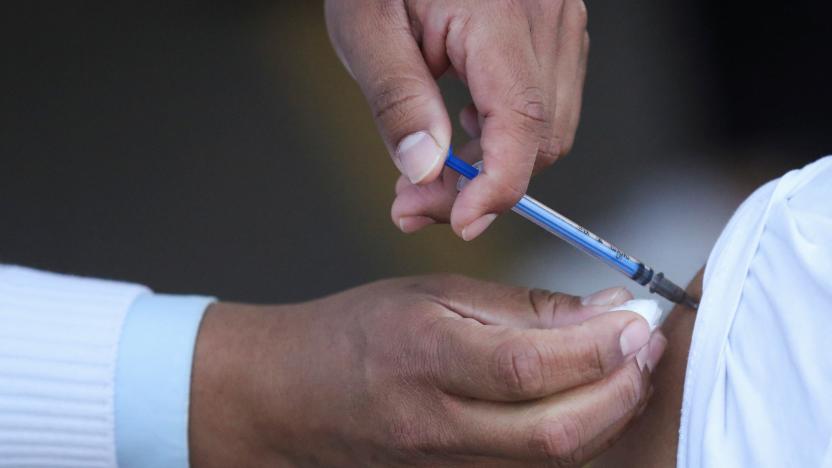
Moderna begins early-stage trials of mRNA-based HIV vaccine
Moderna has begun early-stage clinical trials of an HIV mRNA vaccine,
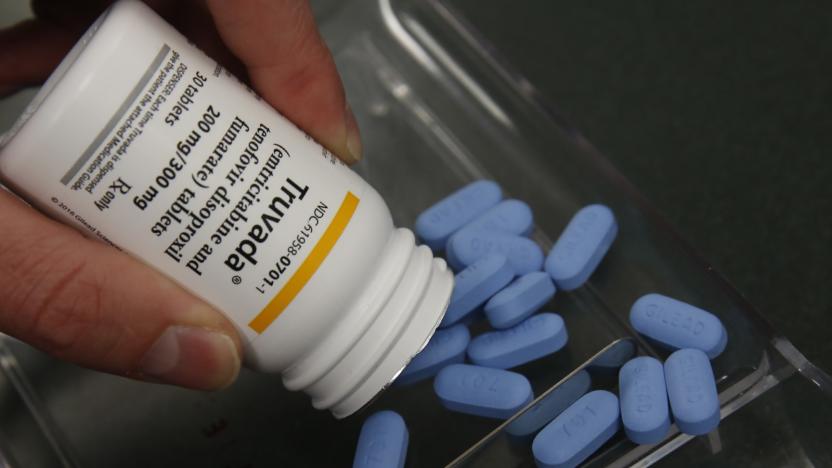
Ads on Facebook are spreading misinformation about anti-HIV drugs
While many are focused on Facebook's unwillingness to curb false political ads, there appears to be another misinformation campaign going unchecked. The Guardian and GLAAD have noted that personal injury law firms continue to run Facebook ads making false claims about the risks of Truvada, a drug meant to reduce the likelihood of HIV transmission. Some float the specters of bone loss and kidney damage despite evidence that the risks of either are "not clinically significant," according to the San Francisco AIDS Foundation.

Strawberry-flavored HIV medicine could save thousands of children
There are roughly 80,000 babies and toddlers who die of AIDS every year, and that's partly due to the difficulty of administering the medicine. It can be extremely difficult for a toddler to swallow a pill or a foul-tasting syrup with alcohol. Cipla may have a much better solution. It's introducing a new anti-HIV drug, Quadrimune, whose strawberry-flavored granules are much easier to swallow. While it comes in capsules, parents can make it more palatable by sprinkling the contents on soft food or in drinks.

Stem cell transplant offers hope for an HIV cure
There appears to be more than one promising sign in the quest for an HIV cure. Researchers have given a London patient a bone marrow stem cell transplant that has left him HIV-free for the past 18 months. As the donor has a very rare genetic mutation (CCR5 delta 32) that makes them HIV-resistant, the stem cells sent the HIV into remission with only a "mild reaction" from the treatment. It's a positive sign, and it suggests that the stem cell transplants that 'cured' Tim Brown in 2007 weren't just flukes.
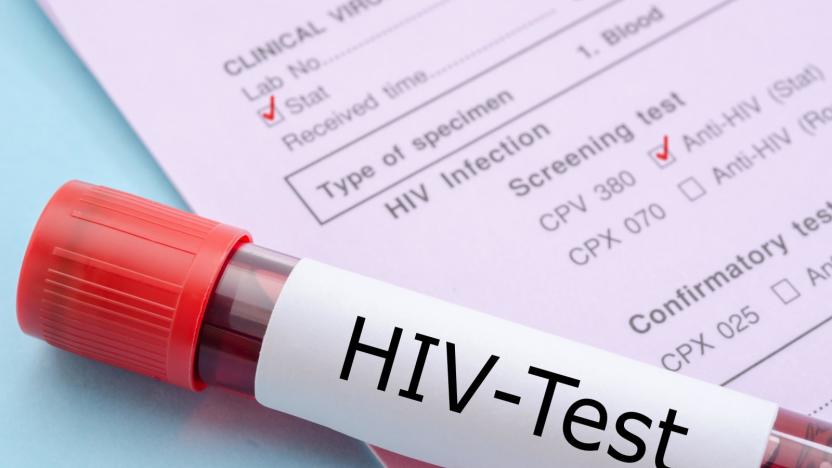
HIV vaccine delivers promising results in human tests
A Harvard-led team of scientists has made important progress in the quest to prevent HIV infections. They've had early success testing a multi-strain vaccine in humans -- everyone who received the drug produced at least some kind of anti-HIV immune response, with at least 80 percent producing more advanced responses. The researchers also found that the same vaccine protected 67 percent of rhesus monkeys against simian-human immunodeficiency virus, which suggests it might be effective against HIV.

YouTube ran ads on AIDS conspiracy theory videos
YouTube has run into issues in the past for showing ads before inappropriate videos. In some cases it has caused companies to pull their ads from the platform and at least one firm has put together its own algorithm to identify YouTube channels on which it's safe to advertise. However, though YouTube has changed its guidelines and hired more human moderators, advertisements are still showing up alongside questionable content. Now, Adweek reports, ads from major companies are appearing before videos featuring fake medical news such as AIDS conspiracy theories.

Twitch and Coca-Cola will raise money to fight AIDS with a MOBA tournament
With World AIDS Day coming up on December 1st, Twitch is partnering up with (Coca Cola)RED for one week to help fight the disease in sub-Saharan Africa. On December 2nd, you can stream Twitch's Arena of Valor channel and watch eight popular streamers face off playing the mobile MOBA designed by Tencent Games. There will be a way to make donations during the stream, of course, and if you're a streamer, you can gather donations for the entire week, too. Coca Cola will match up to $50,000 of all donations gathered during the week.

Amazon Echo is the latest device to benefit (RED)
Want to get a smart speaker while contributing to an important cause? Amazon has you covered: it just unveiled a Product (RED) version of its second-generation Echo. As you might expect, buying the crimson-hued device will contribute 10 percent (in this case, $10) of its purchase price to fighting AIDS through the Global Fund. It happens to be considerably more eye-catching, too, which might help if you'd rather have your speaker stand out than blend into the decor.
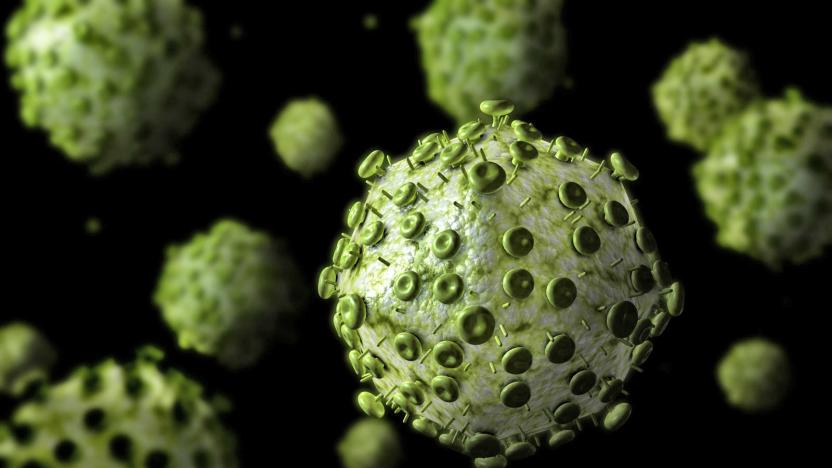
HIV breakthrough may help scientists kill sleeping virus cells
AIDS patients must endure a lifetime of drugs because the virus conceals itself in the immune system and reactivates with a vengeance once the treatment stops. However, French scientists have discovered a marker that makes it possible to identify dormant, HIV-infected T-cells from healthy ones. That could lead to drugs that target those "reservoir cells," eradicating the virus completely and curing the patient.

Bill and Melinda Gates back an implant that could prevent HIV
You don't have to wait until after an infection to fight HIV. A technique known as pre-exposure prophylaxis has you taking preemptive medicine on a regular basis, greatly reducing the chances that HIV will take root in the first place. Needless to say, such a treatment could change the world if done well -- and the Bill & Melinda Gates Foundation wants to make sure that it's as easy as possible. They're investing $140 million in an Intarcia Therapeutics program that will develop an under-the-skin pump implant (you're looking at it above) that will deliver a steady stream of anti-HIV drugs in 6- or 12-month batches. Instead of having to remember to take medicine every day, you'd only have to top up once or twice a year.

Apple's renewed fight against AIDS includes new iPhone cases
Apple has made a tradition of marking World AIDS Day with a campaign to donate to the Product (RED) charity, and it's going the extra mile for its 10th year of support. On top of the company's existing (RED) gear (which sends a contribution to the Global Fund's fight against AIDS), it's launching four new accessories and devices that count toward the charity. You can get red versions of the iPhone 7 Battery Case, the leather iPhone SE case, Beats Solo 3 Wireless headphones and the Beats Pill+ wireless speaker. All of these are available today, and there are other ways to help out even if you have no intentions of buying hardware.

Science exonerates HIV's 'Patient 0'
For years, many have pinned HIV's US outbreak on one man: a flight attendant, nicknamed Patient 0, whose travels and sexual activity allegedly helped spread the virus quickly. However, there's now evidence to suggest that he was little more than a scapegoat. A team of American and British researchers has used genetic reconstruction to narrow down the American arrival of HIV to between 1970 and 1971, before Patient 0 was even having sex.
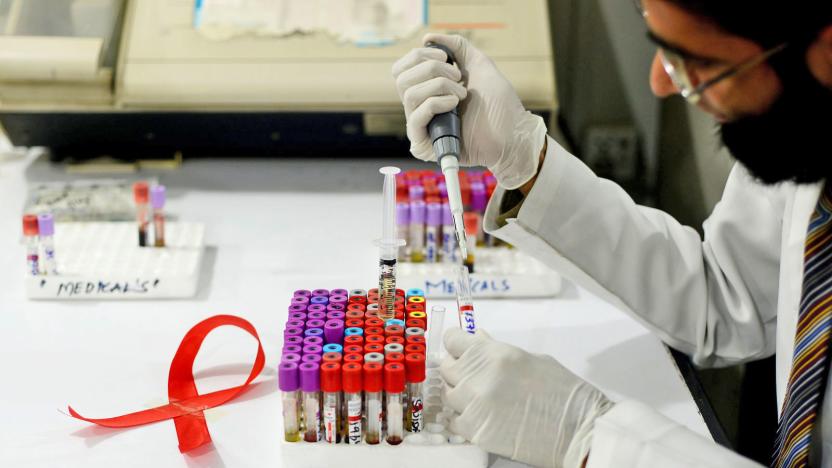
HIV researchers edge closer to a cure
Most recent news on the fight against HIV has focused on preventative medicine and suppression, but British scientists might be inching toward an honest-to-goodness cure. A 44-year-old social worker in London appears to be completely free of the virus after undergoing an experimental "kick and kill" treatment as part of a trial. The patient first took a vaccine to help his immune system detect infected cells, and then took Vorinostat to activate dormant infected cells that normally don't get caught. After that, it was just a matter of letting the healthy parts of the immune system kill off all the HIV, theoretically eliminating any chance of the virus coming back.

Researchers want to block HIV with a 'therapeutic' virus
Despite the best efforts to date, a vaccine for HIV remains beyond our reach. It seems every time researchers get close, the virus mutates to stay a step ahead, creating a biological arms race. But a team of scientists at the University of Texas believe they may have found a way to hobble HIV and drastically reduce its virulence. They want to infect susceptible cells with a "good" virus first, one that will effectively immunize them against HIV.
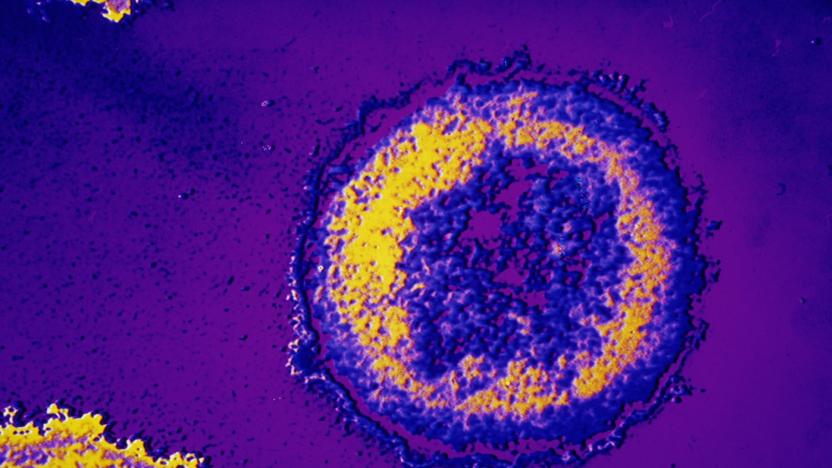
HIV resists attempts to cripple it with gene editing
It's tempting to treat gene editing as a cure-all: surely you can end diseases and viruses by changing or removing the qualities that make them dangerous, right? Well, it's not quite that simple. Researchers trying to cripple HIV by cutting up its DNA (using CRISPR) discovered that some virus samples not only survived the attack, but mutated to resist these incursions. The host T cell actually helped things along by trying to repair the cuts, inserting DNA bases and creating a mutated virus that couldn't be detected by the immune system.

Scientists can watch HIV spread through a mouse in real time
Scientists have long been perplexed by HIV's ability to spread through the body - until now, that is. A team of medical researchers from Yale University have for the first time recorded the retrovirus' movement through a mouse host.

First home HIV test goes on sale in Britain
Although sexual health has become less of a taboo subject, ensuring that people get tested for STDs remains a big issue. The NHS now offers DIY kits for those worried they might have caught something from a partner and don't want to get tested by a doctor, but home HIV screening has not been possible -- at least until today. Britain's first legally-approved HIV test is now on sale, promising 99.7 percent accuracy from three months after a person suspects they may have been exposed to the infection. It requires a drop of blood and can provide a clear result in around 15 minutes.

Brazil used Tinder bots to promote AIDS awareness
Despite what Tinder execs say, everyone knows what the app's actually used for (hint: it's casual sex), which explains why the Brazilian government (Portuguese) has used the mobile app to spread the word about AIDS. It also brought Hornet, an app aimed at gay males, into the fold and created accounts on each in an effort to raise awareness for condom use. The faux profiles were for three men and two ladies who're pretty open about their interest in prophylactic-free intercourse, and, should a Brazilian match with any of them, they'll immediately get a message warning them about the risks of unprotected sex. Given the country's struggles with the disease, hopefully it's effective.

This is a game about the realities of living with HIV
Hi, my name is Tim and I just learned I'm HIV positive. Not me personally, but, as the character Tim I played in I'm Positive, a short interactive narrative about living with the human immunodeficiency virus. It started out simply enough: I was shooting baskets when a phone call interrupted my jump shots. It was an ex girlfriend telling me that she'd been diagnosed as HIV positive after giving blood, and she urged me to get tested as soon as possible. Maybe it's because getting tested has been on my mind anyhow or possibly because I shared a name with the protagonist (there aren't any custom-name options; everyone plays as Tim), but after I "hung up" the phone I felt a weight in my chest and an all-too-real sense of panic.







